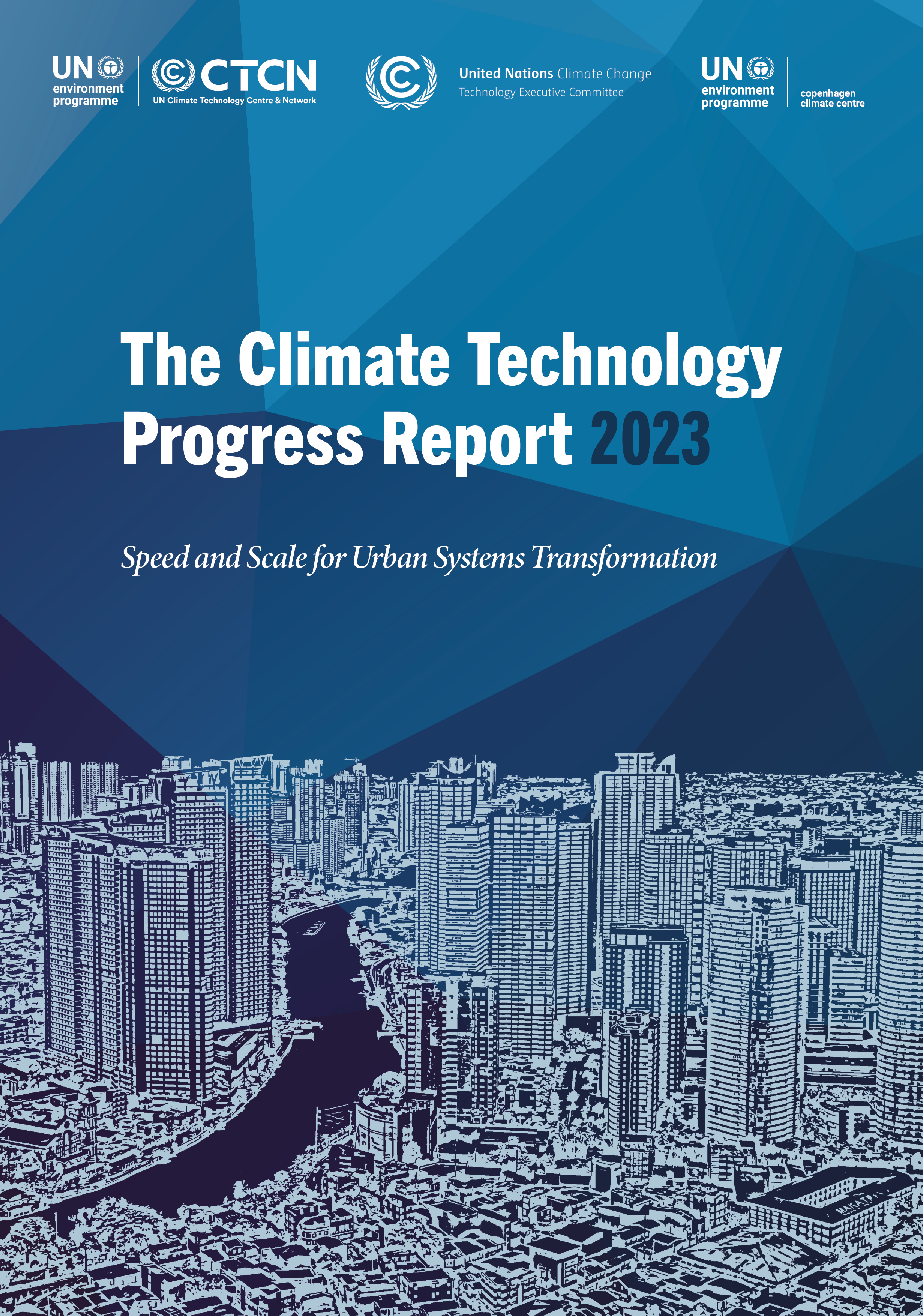Today, the 2023 Climate Technology Progress Report was launched, providing invaluable insights into how we can speed up critical implementation of the technologies needed to mitigate and adapt to the climate crisis.
The world is at a critical turning point in the battle against the triple planetary crisis of climate change, biodiversity loss and pollution.
Unfortunately, the current pace and scale of global action is insufficient to tackle climate change. Even though global commitment to the Paris Agreement is strong, there is an urgent need to accelerate our actions.
The Climate Technology Progress Report provides science-based clarity on what leads to successful development and transfer of technology, and to the gaps and enablers in amplifying climate action.
Enhancing technology development and transfer
Meeting climate targets, avoiding the climate catastrophes looming in our planet’s future, requires efficient and rapid scaling up of the implementation of climate technologies.
The Climate Technology Progress Report enhances our understanding of technology development and transfer, progress enablement, and the need for gap filling, to assist decision makers in their choices for strategic and catalytic actions and investments.
The 2023 report answers the following questions, all within the context of enhancing technology development and transfer:
- What progress is being made?
- What has enabled it?
- Where are the gaps?
- Building on this understanding, how do we better enhance climate technology development and transfer?
Speed and scale for urban systems transformation
Last year, the 2022 Climate Technology Progress Report, set out a framework and approach for tracking and exploring trends in technology progress while applying the approach using data and cases from the Africa region.
The 2023 Climate Technology Progress Report continues to explore progress and sets out analyses and case studies focused on urban transitions in the context of Asia.
With one of the fastest-growing urban populations, transforming urban systems to mitigate and adapt to the impacts of climate change has become a central matter for municipalities and regional authorities. At the same time, may urban areas in Asia are highly vulnerable to extreme weather and climate change impacts.
The cases included in the report are selected to represent a variety of different types of cities, representing developed, emerging, and developing countries in Asia. They zoom in on cases, where strong synergies exist for mitigation, adaptation, and high co-benefits for socio-economic development.
The Climate Technology Progress Report series
The purpose of the Climate Technology Progress Reports is to provide credible science and policy relevant assessments on technology transfer, to clarify what leads to success and what the barriers and enablers are.
The reports focus on both industrialized and developing countries, providing both a local and global perspective.
This year, the report is divided into two parts: One evaluating a wide range of mitigation and adaptation technologies and addresses the key question of what we need to do to increase implementation of these technologies, and another analyzing enabling environments such supporting infrastructure, policies, regulatory frameworks and investments.
This year’s report is produced and published as a collaboration between the UNEP Copenhagen Climate Centre and the UNFCCC Technology Mechanism, comprising the Technology Executive Committee and the Climate Technology Centre and Network, and has been prepared by an international team of 33 experienced scientists.
